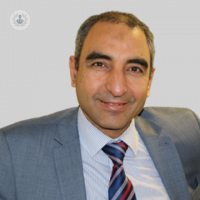Endometriosis and patient quality of life
Written by:How does endometriosis and its symptoms affect the daily life of patients?
Endometriosis varies greatly in the severity of its symptoms.
For some women, symptoms can be severe enough to completely ruin their quality of life. The severity of pain can be agonising, debilitating and can affect all aspects of physical, psychological and mental health of the patient.

Many patients lose their jobs, careers, the ability to eat, the ability to sleep well and to enjoy their life as usual.
It can be severly disrupting to the quality of life of women, especially when the pain is agonising.
What causes endometriosis?
Endometriosis has been introduced and defined for over 100 years but until this day, doctors do not know the exact cause of this common condition, despite the large amount of research surounding it.
However, the most common theory is the retrograde menstruation theory. When doctors scope a woman during menstuation, they almost always find menstruation blood into the pelvic cavity.
From this menstruation blood, there are cells from the lining of the womb that can stay there, grow and cause inflammation and fibrosis, that causes problems in the lesions of endometriosis.
What can be the psychological impact of endometriosis?
It is common for women with endometriosis to have serious menal health problems such as anxiety, depression and lack of sleep.
There is also an increase of suicidal thoughts and suicidal attempts for these women. They are young, otherwise healthy but suddenly they are stricken with this debilitating pain.
There is also a huge psychological effect linked to the illness. Endometriosis can cause sufferers to lose their Jobs and careers and negatively impact their social life.
What does treatment do for patients who have endometriosis? What’s involved?
There is mainly three lines of treatment for women with endometriosis depending on the severity of the disease, severity of the symptoms, patient circumstances and the patient’s wishes.
The first option is to alleviate the antagonising pain. There are several painkillers that usually have some level of effectiveness in reducing the amount of pain.
The second line of treatment is hormonal suppressive therapy. Endometriosis is aggravated and stimulated by estrogen. Doctors will try to modulate and inhibit estrogen by using different approaches of hormone therapy.
The last option is to eliminate endometriosis surgically. Doctor usually opt to perform a key hole procedure. They insert a camera into the abdomen where we identify the endometriosis and take it out to eradicate the disease.
How can patients manage their endometriosis symptoms alongside medication?
There are alternatives to help patients manage the symptoms including psychotherapy, physiotherapy and relaxation exercises.
There is some weak evidence to show benefits of acupuncture. Some women have found this helpful.
Relaxation and meditation can play a significant role in managing endometriosis.
Remaining positive, as well as having some sort of support from family members and from partners can make a huge difference with these women.


